
Brazil is known for its natural resources and beauty. Animals and plants are something to behold if you’re visiting this country from any part of the world. Even though the Amazon rainforest is the most famous natural landscape in Brazil, the country is home to six more biomes—each with its own species!
To meet and interact with a whole new world of animals is an amazing experience. One second, we don’t even know a species exists. The next second, there it is: a completely unique being!
Getting to know the names of animals in Portuguese could keep you busy for a long time…but it’s certainly a fun task, especially for animal lovers.
Our comprehensive list of animal names in Portuguese covers both native fauna and animals common to other parts of the world. Combining animals you’re familiar with and more exotic species is a great way to broaden your knowledge about the numerous manifestations of nature’s wonders.
 Table of Contents
Table of Contents
- Domestic Animals
- Farm Animals
- Wild Animals
- Aquatic Animals
- Bugs and Insects
- Birds, Reptiles, and Amphibians
- Animal Body Parts
- Animal-Related Idioms and Slang Expressions
- Conclusion
1. Domestic Animals
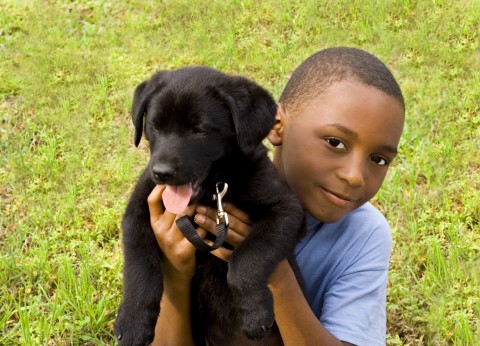
Yes: You will learn the Portuguese word for “puppy” so you can fully enjoy cute memes.
We’ll begin our list with some less exotic animal names in Portuguese—those of housepets!
There is a growing love for pets in Brazil, with the 2019 National Health Survey indicating that dogs are present in 46.1% of Brazilian homes while cats are present in 19.3%. If we combine these totals, we find that these animals are present in 47.9 million homes.
This number is astonishing if we keep in mind that the country’s population of children (aged 0 to 12) was only 35.5 million, according to recent statistics.
Before we move on to our list, here’s the Portuguese word for “puppy”: filhote.
| Cão Cachorro (m.) Cachorra (f.) | “Dog” |
| Gato (m.) Gata (f.) | “Cat” |
| Pássaro | “Bird” |
| Peixe | “Fish” |
| Porquinho-da-índia | “Guinea pig” |
| Coelho (m.) Coelha (f.) | “Rabbit” |
| Rato (m.) Rata (f.) | “Mouse” |
| Pay attention: Although the name of this animal sounds in Portuguese like “rat,” rato and rata actually mean “mouse.” Use ratazana for “rat.” If referring to mice (plural form of “mouse”), the correct word is camundongos. | |
Common Pet Birds and Fish
In addition to more traditional pets, many Portuguese households keep birds or fish as pets. The bird species in Brazil really bring a special “sparkle” to the country’s fauna, and we also host a number of interesting fish varieties. Let’s take a look at which ones are most commonly kept as pets in Brazil.
A- Birds
| Canário | “Canary” |
| Papagaio | “Parrot” |
| Calopsita | “Cockatiel” |
| Maritaca | “Pionus” |
B- Fish
| Peixe betta | “Betta fish” |
| Paulistinha | “Zebrafish” |
| Carpa | “Carp” |
| Peixe-palhaço | “Clownfish” |
2. Farm Animals
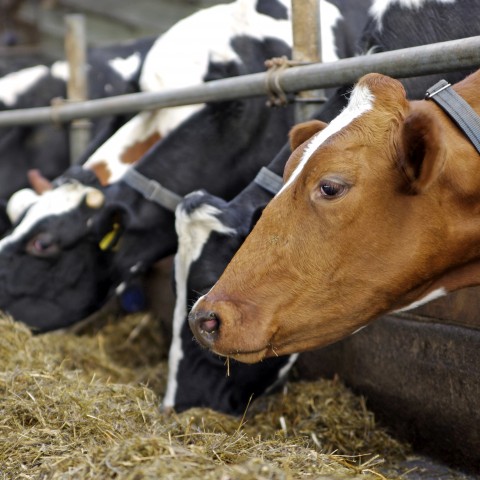
Next stop: the farm!
The raising of livestock is a driving economic activity in Brazil, with cows, chickens, and pigs being the most common farm animals in the country. Portugal’s main livestock product is pig, according to 2018 national statistics, while Angola aims to raise cattle as an economic buffer against the fluctuating oil prices.
While you’re likely to encounter a variety of wildlife species from one Portuguese-speaking country to another, our farm animals are largely the same. One interesting exception is the ema: This giant bird is similar to the ostrich, but with feathery, longer wings. It can be found in Brazil, Paraguay, Bolivia, and Argentina.
Here are the names of common farm animals in Portuguese:
| Vaca (f.) | “Cow” |
| Boi | “Ox” |
| Touro | “Bull” |
| Porco (m.) Porca (f.) | “Pig” |
| Cavalo (m.) Égua (f.) | “Horse” |
| Burro | “Donkey” |
| Peru (m.) Perua (f.) | “Turkey” |
| Pato (m.) Pata (f.) | “Duck” |
| Bode (m.) Cabra (f.) | “Goat” |
| Pro tip: Cabra is not the same as cobra (“snake”). In the Brazilian Northeast, cabra is also a slang term for “bloke” or “guy.” So, pay attention to the context and use this word carefully. | |
| Ovelha | “Sheep” |
| Cordeiro | “Lamb” |
| Ganso (m.) Gansa (f.) | “Goose” |
| Ema | “American rhea” |
| Galinha | “Hen” |
| Galo | “Rooster” |
| The national animal of Portugal is the Rooster of Barcelos. This iconic character is at the heart of a folktale, in which it saves a man from being mistakenly sentenced to death in the city of Barcelos. This rooster is depicted in many colorful versions: paintings, drawings, and especially as colorful souvenir statues that tell anyone “I’ve been to Portugal,” at just one glance. | |
3. Wild Animals
Animals start getting even more interesting when we leave the farm and go farther out to the countryside—or even into the wild. That’s where the most diverse native Portuguese animals live.
Due to the large continental size of Brazil, as well as its diversity of climate and land, this country is especially known for its rich selection of fauna.
Here are the names of some wild animals in the Portuguese language:
| Tatu | “Armadillo” |
| Bicho-preguiça | “Sloth” (Literally: “Laziness animal”) |
| Tamanduá | “Anteater” |
| Quati | “Coati” |
| Paca | “Paca” |
| Macaco (m.) Macaca (f.) | “Monkey” |
| Macaco-prego | “Capuchin monkey” |
| Onça | “Jaguar” |
| Veado Cervo | “Deer” |
| Pro tip: The name of this animal sounds in Portuguese like another word. Do not mistake cervo [e] for servo [ɛ]. The first one is “deer,” but the second is “servant”! | |
4. Aquatic Animals
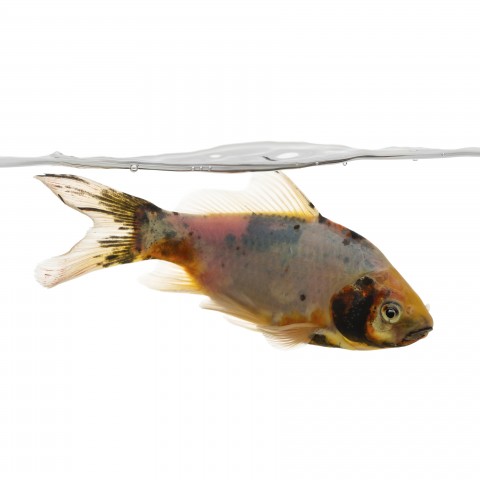
There are plenty of fish in the sea—and beyond!
Still searching in the wilderness, we find some very fascinating aquatic animals. All Portuguese-speaking countries are closely related to the sea and marine life: Angola, Brazil, Guinea-Bissau, Mozambique, and Portugal are coastal countries. Cape Verde, Eastern Timor, and São Tomé and Príncipe are insular countries with access to oceans containing lots of sealife. And let’s not forget the Amazon River, which is home to many awesome—and many yet undiscovered—freshwater animals.
From aquatic life sanctuaries in Portugal to Brazilian turtle protection programs, and from sunny beaches to rivers and waterfalls, there are many opportunities for tourists to meet beautiful native Portuguese animals that live in or around the water.
| Lontra | “Otter” |
| Capivara | “Capybara” |
| Caranguejo | “Crab” |
| Peixe-boi | “Manatee” |
| Lagosta | “Lobster” |
| Tubarão | “Shark” |
| Baleia | “Whale” |
| Polvo | “Octopus” |
| Lula | “Squid” |
| Estrela-do-mar | “Starfish” |
| Água-viva Medusa | “Jellyfish” |
| Marisco | “Shellfish” |
| Tartaruga | “Turtle” |
| Golfinho | “Dolphin” |
| Boto | “River dolphin” |
| The river dolphin is the main character of one of the most interesting Brazilian myths, called boto-cor-de-rosa (“the pink river dolphin”). The legend says this Amazonian animal walks the land transformed as a charming gentleman wearing all-white clothing on moonlit nights. The seducer dolphin-man is said to be the father of all children from unknown fathers, according to this legend of Northern Brazil. | |
5. Bugs and Insects
Our next set of animal names in Portuguese might make you a bit uncomfortable.
We might not like them, and we might even find them disgusting…but we all share the same planet. Language learners should know at least a few bug and insect names in Portuguese! Here are some common ones you’ll find in Brazil and abroad:
| Joaninha | “Ladybug” |
| Besouro | “Beetle” |
| Aranha | “Spider” |
| Escorpião | “Scorpion” |
| Centopeia | “Centipede” |
| Minhoca | “Worm” |
| Barata | “Cockroach” |
| Abelha | “Bee” |
| Vespa | “Wasp” |
| Borboleta | “Butterfly” |
| Mariposa | “Moth” |
| Formiga | “Ant” |
| Grilo | “Cricket” |
| Lesma | “Snail” |
| Carrapato | “Tick” |
| Mosca | “Fly” |
| Mosquito | “Mosquito” |
6. Birds, Reptiles, and Amphibians
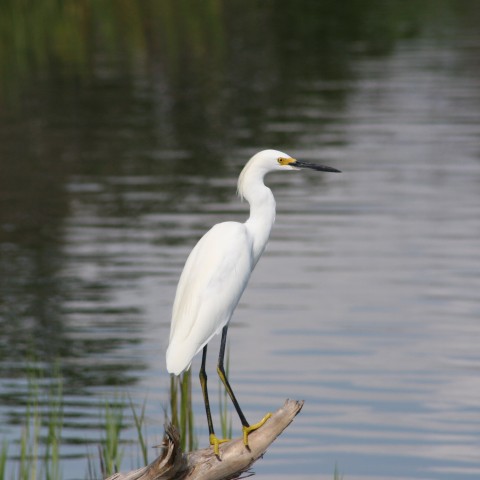
You are now entering the rabbit hole of Portuguese bird names.
Are you ready to learn a few more specific animal names in Portuguese? Brazil is home to a particularly diverse population of birds, reptiles, and amphibians, and knowing their names will make your trip even more memorable.
Even though our list here is quite comprehensive, you could study even more species using Cornell University’s Ornithology database. Their well-designed Merlin app is a practical way to explore and identify many different types of birds worldwide.
| Tucano | “Tucano” |
| Arara | “Macaw” |
| Jaburu | “Jabiru” |
| Garça | “Great egret” |
| Falcão | “Falcon” |
| Gavião | “Hawk” |
| Bem-te-vi | “Great kiskadee” |
| Alma de gato | “Squirrel-cuckoo” |
| Andorinha | “Swallow” |
| Pardal | “Sparrow” |
| Pomba | “Pigeon” |
| Coruja | “Owl” |
| Quero-quero (also known as abibe-do-sul in Portugal) | “Southern Lapwing” |
| Pica-pau | “Woodpecker” |
| Jabuti | “Tortoise” |
| Jacaré | “Cayman” |
| Cobra | “Snake” |
| Fun fact: The Brazilian Butantan Institute developed the very first anti-ophidic antidotes in the world. Its Biologic Museum has a collection of some of the most famous and intriguing Brazilian snakes, such as the jararaca, sucurí, surucucú, cascavel (“rattlesnake”), coral, and many more. | |
| Lagarto | “Lizard” |
| There is also a general label for any small lizard in many parts of Brazil: calango. | |
| Sapo Rã | “Frog” / “Toad” |
7. Animal Body Parts
Now that you’ve learned a few common animal names, the next step is to learn the names of their unique body parts. Adding these words to your Portuguese animal vocabulary will help you better describe the animals you encounter during your visit!
| Rabo Cauda | “Tail” |
| Pelo | “Hair” |
| Dente | “Tooth” |
| Presa | “Fang” |
| Garra | “Claw” |
| Chifre | “Horn” |
| Galhada | “Antlers” |
| Casco | “Hoof” |
| Pena Pluma | “Feather” |
| Asa | “Wing” |
| Bico | “Beak” |
| Barbatana | “Fin” |
| Tentáculo | “Tentacle” |
| Juba | “Mane” |
| Tromba | “Trunk” |
| Antena | “Antenna” |
| Pata | “Leg” |
| Pro tip: The word pata does not refer to a human leg (which is called perna). Also, remember that pata is Portuguese for a female duck! | |
| Escama | “Scale” |
8. Animal-Related Idioms and Slang Expressions
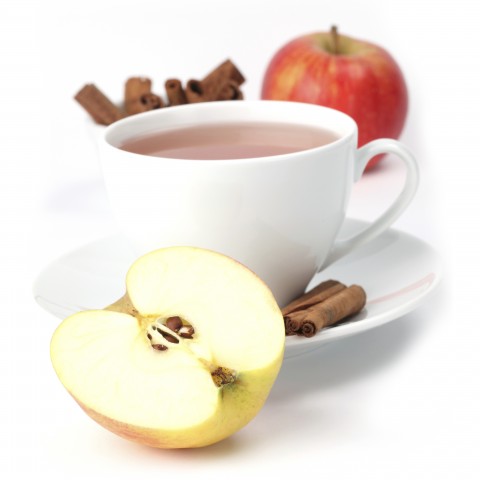
Behold the most expected guests at teatime: kettle beak and teacup wing.
After this tour de force through the zoo, here’s a final souvenir from this extensive journey of studying animal names in Portuguese: idioms and slang expressions!
These expressions have the same meaning as their English translations:
- “Butterflies in the stomach” – Borboletas no estômago
- “The black sheep of the family” – A ovelha negra da família
Now, these idioms and expressions might sound odd to a tourist in a Portuguese-speaking country:
- “The teacup’s wing” – A asa da xícara [de chá]
- “Kettle’s beak” – Bico da chaleira
- “He does not resist a skirt’s tail.” – Ele não resiste a um rabo de saia.
The teacup’s handle is sometimes called its “wing,” and the kettle’s spout is called its “beak.”
On the other hand, a “skirt’s tail” is a slang term for “woman” in a flirtatious context. If someone is interested in a woman, they might pay attention to the movement of her skirt (the way a hunter might notice the tail movement of an animal).
- “Dog’s ears” – Ouvidos caninos
Someone with a sensitive sense of hearing is said to have a dog’s ears.
- “Jaguar’s friend” – Amigo da onça
A “jaguar’s friend” is someone who is an inconvenience to others, namely a friend who doesn’t act so friendly. This expression was made popular by a 1940s comic strip created by Péricles de Andrade Maranhão in the O Cruzeiro magazine.
- “I don’t like you because you’re (a) donkey.” – Não gosto de você porque você é burro.
A donkey is a stubborn animal and a synonym for “dumb” in Brazil. In this case, it’s used as an adjective.
- “Man, we’ve paid the duck…” – Cara, nós pagamos o pato…
As odd as this idiom might sound, “to pay the duck” means to be fooled. A variation of this expression is “to fall like a duck,” used when someone “falls” for a prank or a scam.
- “He turned into a macaw.” – Ele virou uma arara.
- “She turned into a beast.” – Ela virou um bicho. / Ela virou uma fera.
These phrases are used to express that someone became very angry over something.
9. Conclusion
You’ve now learned a good variety of animal names in Portuguese, as well as other relevant words and phrases. Unfortunately, it would be impossible to include every animal on this list. But we did our best to include both animals you’ll find in Brazil and those you’re more familiar with from abroad.
But you don’t have to stop here!
If you can’t get enough of Mother Nature’s children and want to learn even more animal words in Portuguese, create your free lifetime account on PortuguesePod101.com today.
PortuguesePod101 is the most complete and interesting multimedia hub for Portuguese learners at every level, from Beginner to Advanced. We provide everything you’ll need to improve your language skills: short video lessons, themed vocabulary lists, free content, and even private Portuguese classes to expedite your learning progress.
Never mind old, dusty grammar books or months of repetitive exercises in your language learning app. Get real and start a solid path to knowledge at PortuguesePod101.com!
Before you go, what’s your favorite animal? Do you know its name in Portuguese?










